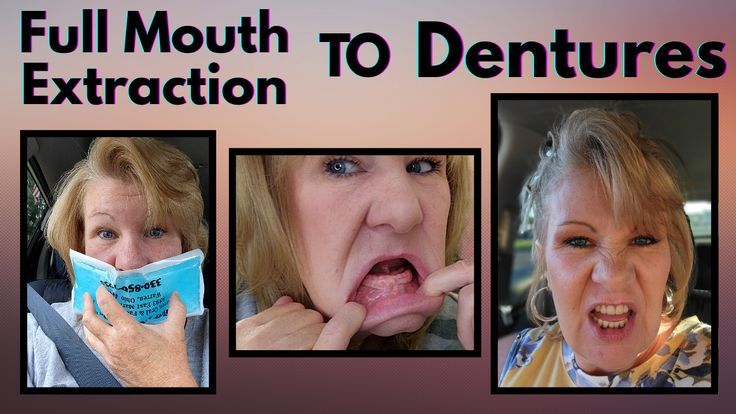Dry Mouth After Extraction: Relief Guide

Dry mouth, also known as xerostomia, is a common issue that can arise after a tooth extraction. This condition is characterized by a decrease in saliva production, which can lead to discomfort, difficulty swallowing, and an increased risk of infection. In this article, we will delve into the causes of dry mouth after extraction, its symptoms, and most importantly, provide a comprehensive relief guide to help you manage and alleviate this condition.
Understanding Dry Mouth After Extraction
To comprehend why dry mouth occurs after a tooth extraction, it’s essential to understand the role of saliva in the mouth. Saliva serves multiple purposes, including facilitating the breakdown of food, neutralizing acids, and protecting against infections by washing away bacteria. After an extraction, the body’s ability to produce saliva can be temporarily impaired due to several factors:
- Surgical Trauma: The physical trauma caused by the extraction can affect the salivary glands and the nerves that control them, leading to a reduction in saliva production.
- Medications: Certain medications, such as pain relievers and antibiotics, prescribed after an extraction can have dry mouth as a side effect.
- Stress and Anxiety: The stress and anxiety associated with undergoing a surgical procedure can also contribute to dry mouth.
Symptoms of Dry Mouth
Recognizing the symptoms of dry mouth is crucial for prompt management and relief. These symptoms include:
- Dryness: A feeling of dryness in the mouth and throat.
- Difficulty Swallowing: Swallowing becomes challenging due to the lack of saliva.
- Bad Breath: The accumulation of bacteria due to reduced saliva flow can lead to bad breath.
- Sore Throat: Irritation and dryness can cause soreness in the throat.
- Difficulty Speaking: Dry mouth can make speaking uncomfortable.
Relief Guide for Dry Mouth After Extraction
Fortunately, there are several strategies and products available to provide relief from dry mouth after a tooth extraction:
1. Stay Hydrated:
Drinking plenty of water is essential to keep your mouth moist and help stimulate saliva production. Aim for at least eight glasses of water a day and consider increasing your intake if you’re taking medications that can exacerbate dry mouth.
2. Sugar-Free Gum and Candy:
Chewing sugar-free gum or sucking on sugar-free candy can stimulate saliva production. Look for products that contain xylitol, as it has been shown to prevent tooth decay.
3. Saliva Substitutes:
There are various over-the-counter saliva substitutes available, including sprays, gels, and lozenges. These products can mimic the properties of saliva and provide relief.
4. Humidifier:
Using a humidifier in your home, especially at night, can help keep your mouth and throat moist.
5. Avoid Irritants:
Refrain from consuming alcohol, tobacco, and caffeine, as these can worsen dry mouth symptoms.
6. Good Oral Hygiene:
Maintaining good oral hygiene is crucial. Use a fluoride toothpaste and mouthwash to keep your mouth clean and protected.
Advanced Relief Strategies
For some individuals, additional measures may be necessary to manage dry mouth effectively:
- Prescription Medications: In cases where dry mouth is severe and persistent, your dentist or healthcare provider may prescribe medications that stimulate saliva production.
- Saliva-Stimulating Devices: Devices like oral lubricants and saliva stimulators can provide targeted relief.
Conclusion
Dry mouth after a tooth extraction is a common but manageable condition. By understanding its causes, recognizing its symptoms, and implementing the relief strategies outlined in this guide, you can effectively alleviate dry mouth and ensure your oral health and comfort during the recovery period. Remember, if your symptoms persist or worsen, it’s crucial to consult with your dentist or healthcare provider for personalized advice and treatment.
How long does dry mouth typically last after a tooth extraction?
+Dry mouth after a tooth extraction can last anywhere from a few days to several weeks, depending on the individual and the specifics of the extraction. In most cases, saliva production returns to normal once the mouth has healed sufficiently.
Can dry mouth increase the risk of infection after a tooth extraction?
+Yes, dry mouth can increase the risk of infection after a tooth extraction. Saliva plays a crucial role in washing away bacteria and debris. With reduced saliva production, the risk of bacterial accumulation and subsequent infection can increase.
Are there any home remedies for dry mouth after extraction?
+Yes, several home remedies can help alleviate dry mouth symptoms, including sucking on ice chips, using a saltwater rinse, and drinking plenty of water. However, it’s essential to consult with your dentist or healthcare provider before trying any new remedies, especially if you’re taking medications or have underlying health conditions.

